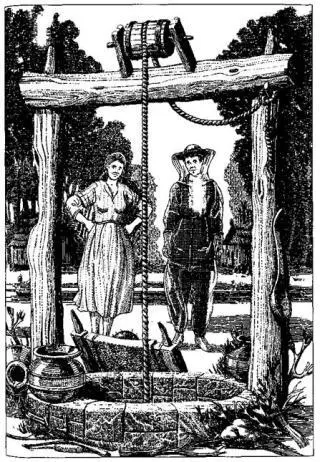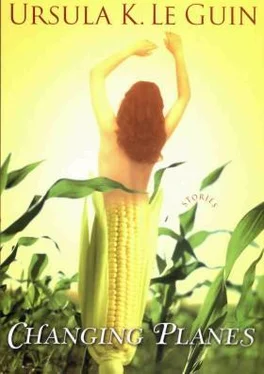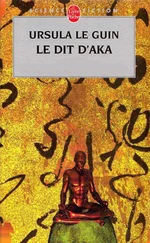
“About noon on the fifth day, I raised the island. Low-lying, it appeared to be at least fifty miles long from north to south.
“In the region in which I first brought the boat close to the land, the shores were entirely salt marsh. It being low tide, and the weather unbearably sultry, the putrid smell of the mud kept us well away, until at length sighting sand beaches, I sailed into a shallow bay and soon saw the roofs of a small town at the mouth of a creek. We tied up at a crude and decrepit jetty and with indescribable emotion, on my part at least, set foot on this isle reputed to hold the secret of ETERNAL LIFE.”
I think I shall abbreviate Postwand; he’s long-winded, and besides, he’s always sneering at Vong, who seems to do most of the work and have none of the indescribable emotions. So he and Vong trudged around the town, finding it all very shabby and nothing out of the ordinary, except that there were dreadful swarms of flies. Everyone went about in gauze clothing from head to toe, and all the doors and windows had screens. Postwand assumed the flies would bite savagely, but found they didn’t; they were annoying, he says, but one scarcely felt their bites, which didn’t swell up or itch. He wondered if they carried some disease. He asked the islanders, who disclaimed all knowledge of disease, saying nobody ever got sick except mainlanders.
At this, Postwand got excited, naturally, and asked them if they ever died. “Of course,” they said.
He does not say what else they said, but one gathers they treated him as yet another idiot from the mainland asking stupid questions. He becomes quite testy, and makes comments on their backwardness, bad manners, and execrable cookery. After a disagreeable night in a hut of some kind, he explored inland for several miles, on foot since there was no other way to get about. In a tiny village near a marsh he saw a sight that was, in his words, “proof positive that the islanders’ claim of being free from disease was mere boastfulness, or something yet more sinister: for a more dreadful example of the ravages of udreba I have never seen, even in the wilds of Rotogo. The sex of the poor victim was indistinguishable; of the legs, nothing remained but stumps; the whole body was as if it had been melted in fire; only the hair, which was quite white, grew luxuriantly, long, tangled, and filthy—a crowning horror to this sad spectacle.”
I looked up udreba. It’s a disease the Yendians dread as we dread lerjrosy, which it resembles, though it is far more immediately dangerous; a single contact with saliva or any exudation can cause infection. There is no vaccine and no cure. Postwand was horrified to see children playing close by the udreb. He apparently lectured a woman of the village on hygiene, at which she took offense and lectured him back, telling him not to stare at people. She picked up the poor udreb “as if it were a child of five,” he says, and took it into her hut. She came out with a bowl full of something, muttering loudly. At this point Vong, with whom I sympathise, suggested that it was time to leave. “I acceded to my companion’s groundless apprehensions,” Post-wand says. They sailed away that evening.
I can’t say that this account raised my enthusiasm for visiting the island. I sought some more modern information. My librarian had drifted off, the way Yendians always seemed to do. I didn’t know how to use the subject catalogue, or it was even more incomprehensibly organised than our electronic subject catalogues, or there was singularly little information concerning the Island of the Immortals in the library. All I found was a treatise entitled the Diamonds of Aya—a name sometimes given the island. The article was too technical for the legemat; it kept leaving blanks. I couldn’t understand much except that apparently there were no mines; the diamonds did not occur deep in the earth but were to be found lying on the surface of it—as I think is the case in a southern African desert on my plane. As the island of Aya was forested and swampy, its diamonds were exposed by heavy rains or mud slides in the wet season. People went and wandered around looking for them. A big one turned up just often enough to keep people coming. The islanders apparently never joined in the search. In fact, some baffled diamond hunters claimed that the natives buried diamonds when they found them. If I understood the treatise, some that had been found were immense by our standards: they were described as lumps, usually black or dark, occasionally clear, and weighing up to five pounds. Nothing was said about cutting these huge stones, what they were used for, or their market price. Evidently the Yendians didn’t prize diamonds as we do. There was a lifeless, almost furtive tone to the treatise, as if it concerned something vaguely shameful.
Surely if the islanders knew anything about “the secret of ETERNAL LIFE,” there’d be a bit more about them, and it, in the library?
It was mere stubbornness, or reluctance to go back to the sullen travel agent and admit my mistake, that impelled me to the docks the next morning.
I cheered up no end when I saw my ship, a charming mini-liner with about thirty pleasant staterooms. Its fortnightly round took it to several islands farther west than Aya. Its sister ship, stopping by on the homeward leg, would bring me back to the mainland at the end of my week. Or perhaps I would simply stay aboard and have a two-week cruise? That was fine with the ship’s staff. They were informal, even lackadaisical, about arrangements. I had the impression that low energy and a short attention span were quite common among Yendians. But my companions on the ship were undemanding, and the cold fish salads were excellent. I spent two days on the top deck washing seabirds swoop, great red fish leap, and translucent vanewings hover over the sea.
We sighted Aya very early in the morning of the third day. At the mouth of the bay the smell of the marshes was truly discouraging; but a conversation with the ship’s captain had decided me to visit Aya after all, and I disembarked.
The captain, a man of sixty or so, had assured me that there were indeed immortals on the island. They were not born immortal but contracted immortality from the bite of the island flies. It was, he thought, a virus. “You’ll want to take precautions,” he said. “It’s rare. I don’t think there’s been a new case in the last hundred years—longer, maybe. But you don’t want to take chances.”
After pondering a while I inquired, as delicately as possible, though delicacy is hard to achieve on the translatomat, whether there weren’t people who wanted to escape death-people who came to the island hoping to be bitten by one of these lively flies. Was there a drawback I did not know about, some price too high to pay even for immortality?
The captain considered my question. He was slow-spoken, unexcitable, verging on the lugubrious. “I think so,” he said. He looked at me. “You can judge,” he said. “After you’ve been there.”
He would say no more. A ship’s captain is a person who has that privilege.
The ship did not put into the bay, but was met out beyond the bar by a boat that took passengers ashore. The other passengers were still in their cabins. Nobody but the captain and a couple of sailors watched me (all rigged out head to foot in a suit of strong but gauzy mesh which I had rented from the ship) clamber down into the boat and wave good-bye. The captain nodded. One of the sailors waved. I was frightened. It was no help at all that I didn’t know what I was frightened of.
Putting the captain and Postwand together, it sounded as if the price of immortality was the horrible disease udreba. But I really had very little evidence, and my curiosity was intense. If a virus that made you immortal turned up in my country, vast sums of money would be poured into studying it, and if it had bad effects, scientists would alter it genetically to get rid of them, and the talk shows would yatter on about it, and news anchors would pontificate about it, and the Pope would do some pontificating too, and so would all the other holy men, and meanwhile the very rich would be cornering not only the market but the supplies. And then the very rich would be even more different from you and me.
Читать дальше










